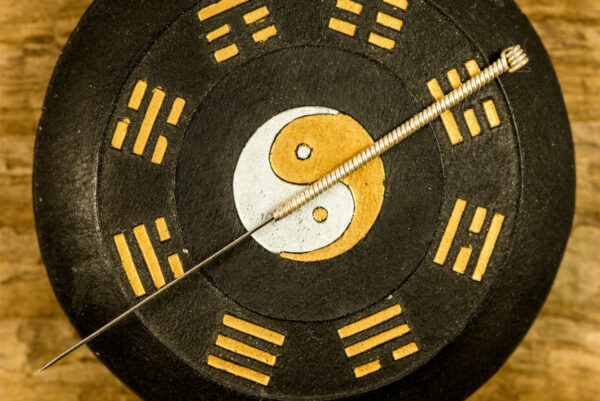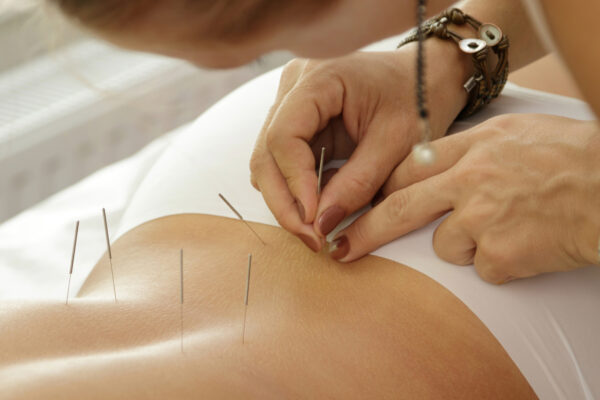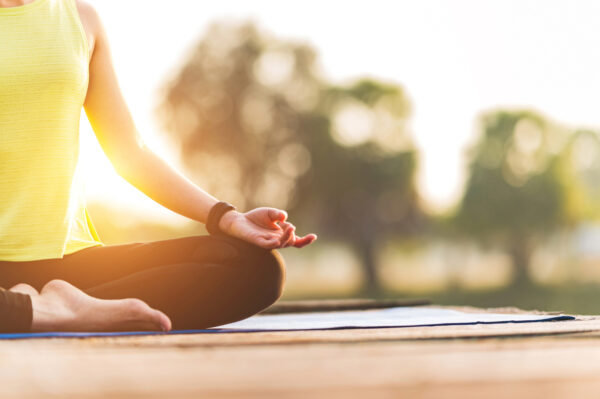Understanding Anxiety and How Acupuncture Can Help
Anxiety is a common mental health issue that affects people all over the world. It can make you feel constantly worried, tense, restless, or unable to sleep. Sometimes, it even causes physical symptoms, such as stomachaches or headaches.
While therapy and medications are often used to treat anxiety, more people are starting to explore natural options. One popular choice is acupuncture, a method that's been used for thousands of years.
What Is Acupuncture?
Acupuncture is a treatment from Traditional Chinese Medicine (TCM) that started over 2,000 years ago in China. It involves placing very thin needles into specific points on the body to help restore balance in the body's energy, known as Qi (pronounced "chee").
In TCM, a smooth flow of Qi means your body and mind are in harmony. But if that energy becomes blocked or unbalanced, it can lead to problems like anxiety, stress, or illness.
Fast facts about acupuncture:
- Originated in China over 2,000 years ago.
- Recognized by the World Health Organization for treating several conditions.
- Increasingly used in Western countries alongside modern medicine.

How Acupuncture Helps Calm the Nervous System
Acupuncture can help manage anxiety by balancing the nervous system. Your body has an automatic system that controls things like your heartbeat, digestion, and your reaction to stress (also known as "fight or flight"). When you're anxious, this system can stay stuck in stress mode.
By targeting specific points on your body, acupuncture can help shift your system from stress mode (sympathetic) to relaxation mode (parasympathetic). This helps you feel calmer, more focused, and less overwhelmed.
How acupuncture may help with anxiety:
- Releases feel-good chemicals like endorphins in the brain.
- Lowers stress hormones like cortisol.
- Calms the nervous system, reducing tension.
- Improves sleep, which is often affected by anxiety.
Popular Acupuncture Points for Anxiety
Several acupuncture points are often used to help with anxiety:
- Yintang (between the eyebrows): Often referred to as the "third eye," this spot is believed to calm the mind.
- Heart 7 (on the wrist): Chosen for emotional balance and heart health.
- Baihui (on the top of the head): Used to clear mental fog and encourage relaxation.
Why People Choose Acupuncture for Anxiety Relief
Acupuncture offers some benefits that make it a good option for managing anxiety naturally.

Top benefits include:
- No drugs needed: It's a natural treatment with few side effects.
- Personalized care: Treatments are tailored to your specific symptoms and needs.
- Mind-body focus: It treats the whole person, not just the anxiety.
- Works with other treatments: Acupuncture can be used alongside therapy, meditation, or medication.
- Emotional balance: Many people feel more relaxed and better equipped to handle life's challenges after undergoing treatments.
Can Acupuncture Help Lower Cortisol and Manage Long-Term Stress?
Yes, acupuncture may lower levels of cortisol, the hormone your body releases during stress. When cortisol levels remain too high for an extended period, it can lead to issues such as poor sleep, low energy, and mood swings.
Acupuncture can help by:
- Bringing cortisol levels back to normal.
- Balancing the nervous system, helping you feel less on edge.
- Improving sleep and emotional health.
- Reducing inflammation that's linked to chronic stress.
These effects can make a big difference for people who feel stressed all the time or are dealing with long-term anxiety.
What Happens During an Acupuncture Session?
If you're curious about trying acupuncture, here's what a typical session looks like:
- First visit: You'll talk with the acupuncturist about your health history, lifestyle, and symptoms.
- Planning your treatment: The acupuncturist will select specific points tailored to your individual needs.
- Inserting the needles: Tiny, sterile needles are gently placed into the skin. Most people experience little to no pain, while others may feel only a slight tingling or warmth.
- Relaxing: You'll lie still with the needles in for about 20 to 30 minutes.
- Aftercare: You may be given tips on breathing, relaxing, or using herbal teas to support your progress.

Common questions:
- Does it hurt? Most people say it doesn't, or it feels like a small pinch.
- Is it safe? Yes, when done by a trained and licensed professional.
- How many sessions do I need? Some individuals feel better after a few visits, while others may require ongoing sessions.
Is Acupuncture a Good Fit for You?
Acupuncture might be a great option if you:
- Prefer natural, drug-free ways to manage anxiety.
- Want to add it to other treatments, such as therapy or medication.
- Are open to a holistic approach that focuses on both mind and body.
Safety tips:
- Acupuncture is usually safe when done by a licensed practitioner.
- Some people may have minor side effects, such as slight bruising or soreness.
- Always talk to your doctor before starting if you're pregnant or have a health condition.

Finding a professional:
- Look for someone who is licensed and has experience helping people with anxiety.
- Ask about their training and how they approach treatment.
Best results:
Acupuncture works even more effectively when combined with healthy habits, such as regular exercise, good sleep, balanced meals, and mindfulness practices.
Common Questions About Acupuncture and Anxiety
How fast does it work?
Some people notice a difference after one session. Others may need a few weeks.
Can I use it with therapy or medication?
Yes! Acupuncture often works well as part of a larger care plan.
Will insurance cover it?
Some plans do cover acupuncture for certain conditions. It's best to check with your provider.
Final Thoughts
Acupuncture is a natural, safe, and time-tested option for reducing anxiety and improving mental well-being. If you're looking for a more holistic approach to managing stress and feeling more at peace, acupuncture may be worth trying as part of your self-care plan.



